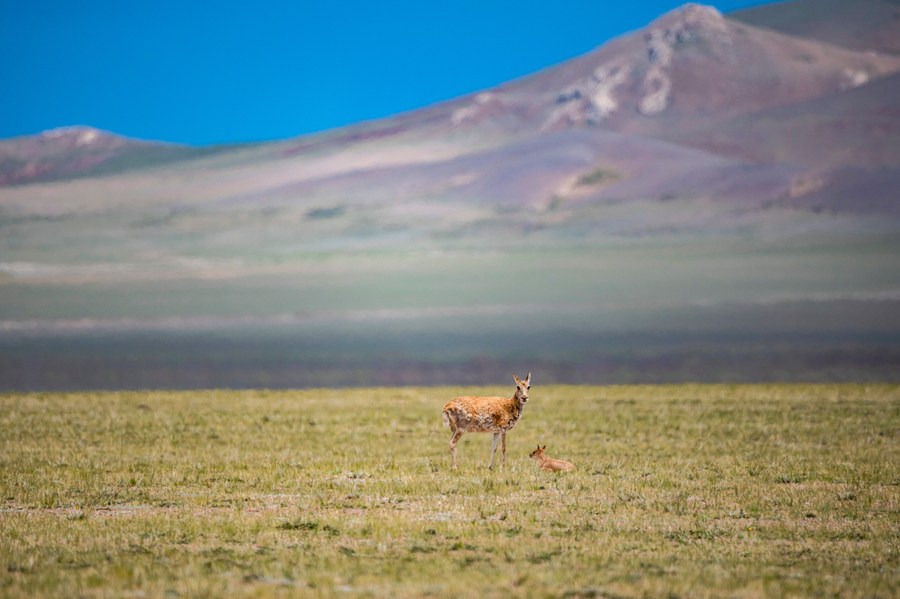NPC to consider draft revision on wildlife protection

Photo taken on July 11, 2022 shows a female Tibetan antelope taking care of its baby at the Qiangtang National Nature Reserve in Southwest China's Tibet autonomous region. [Photo/Xinhua]
People accused of damaging wildlife resources or harming the nation's ecology could face public-interest lawsuits, an official from the top legislature said on Monday.
The directive has been added in a draft revision to the Wildlife Protection Law, which will be submitted to a session of the Standing Committee of the National People's Congress for further review, said Zang Tiewei, spokesman for the NPC Standing Committee's Legislative Affairs Commission.
The upcoming session will run from Tuesday to Friday in Beijing. In general, a draft in China becomes law after it is reviewed three times.
Highlighting the importance of curbing the presence of invasive species, which can cause significant damage to the environment, Zang said the draft amendment has also optimized prevention measures to strengthen biosecurity and national security.
The draft revision states that wildlife protection departments at the county level or above should take action if they discover invasive species that are harming local ecosystems.
It also allows those departments to take control measures, such as ex-situ conservation or even hunting, if they find that the number of wild animals in an area significantly exceeds environmental capacity.
Zang said that the measures would be established by the State Council, China's Cabinet, and the wildlife protection departments would be responsible for implementing them.
He added that since the last review in August, the draft revision has received more than 12,000 suggestions from the public, with some calling for regulations on releasing animals into the wild.
In response, the draft has ordered the State Council to work with relevant agencies to regulate such releases, he added.
Meanwhile, a draft law on the ecological conservation on the Qinghai-Tibet Plateau is also set to be reviewed during the session.
In the draft, it clarifies that people who organize or participate in the plateau-related trips or activities should either take their rubbish with them when they leave or dispose of it at designated sites.
According to a disclosed agenda, draft revisions to the Legislation Law, the Company Law and the Counter-Espionage Law will also be submitted to the session for further review.
Furthermore, lawmakers will deliberate on multiple reports, including those concerning employment and the effectiveness of the Yangtze River Protection Law.



